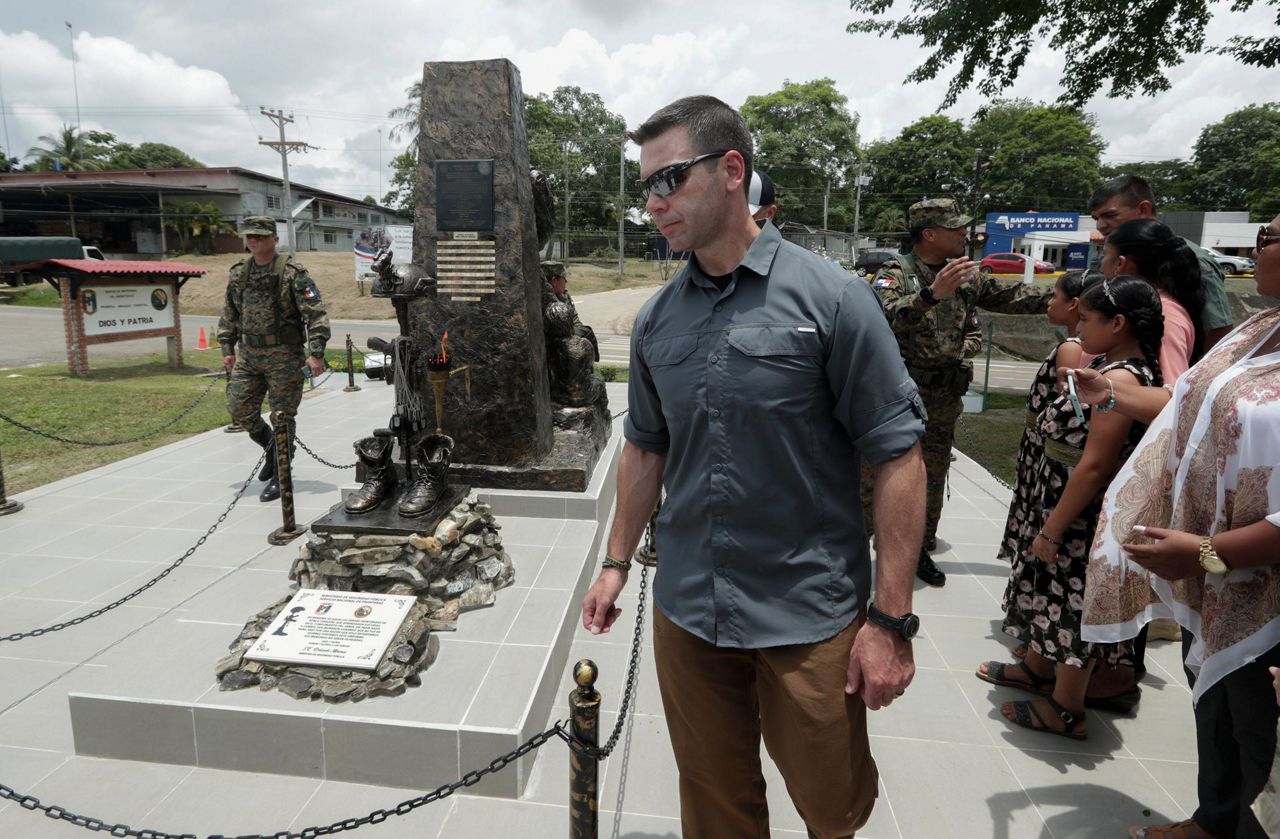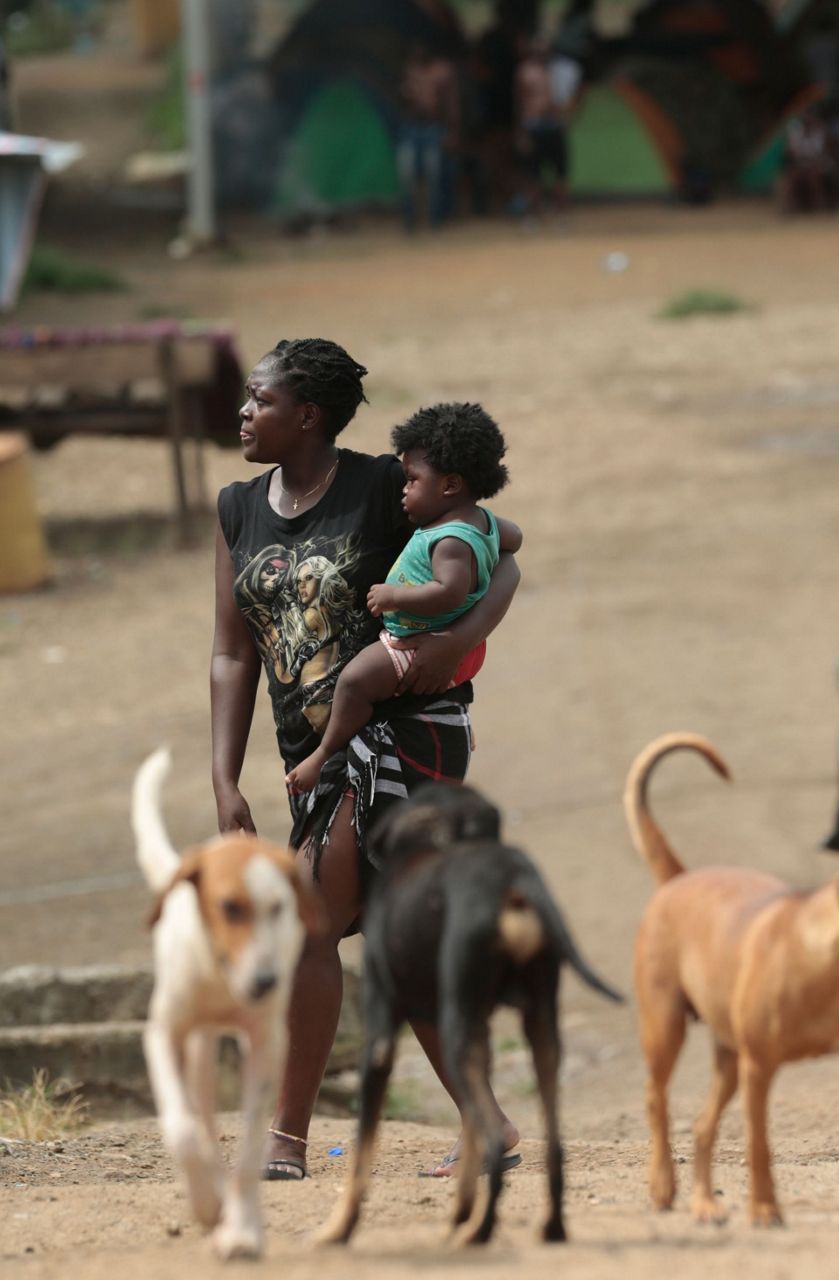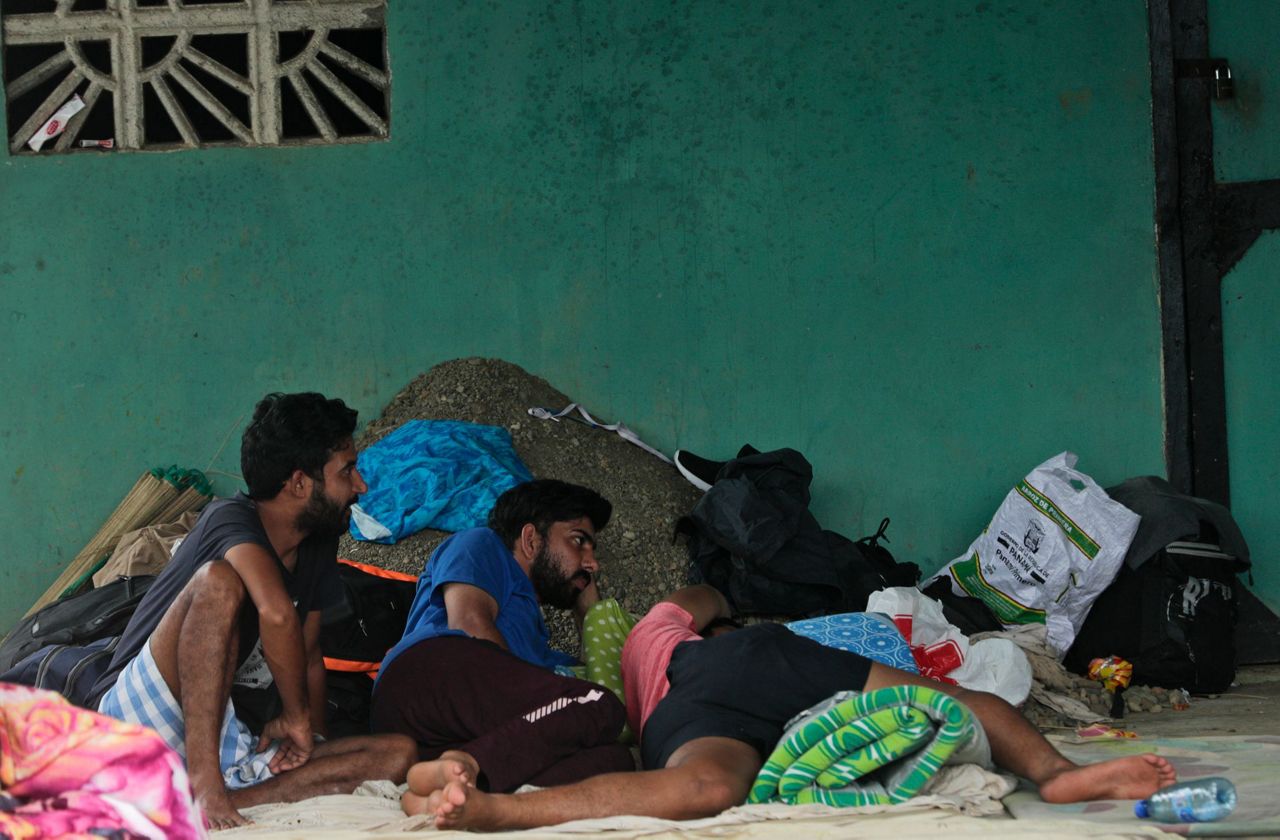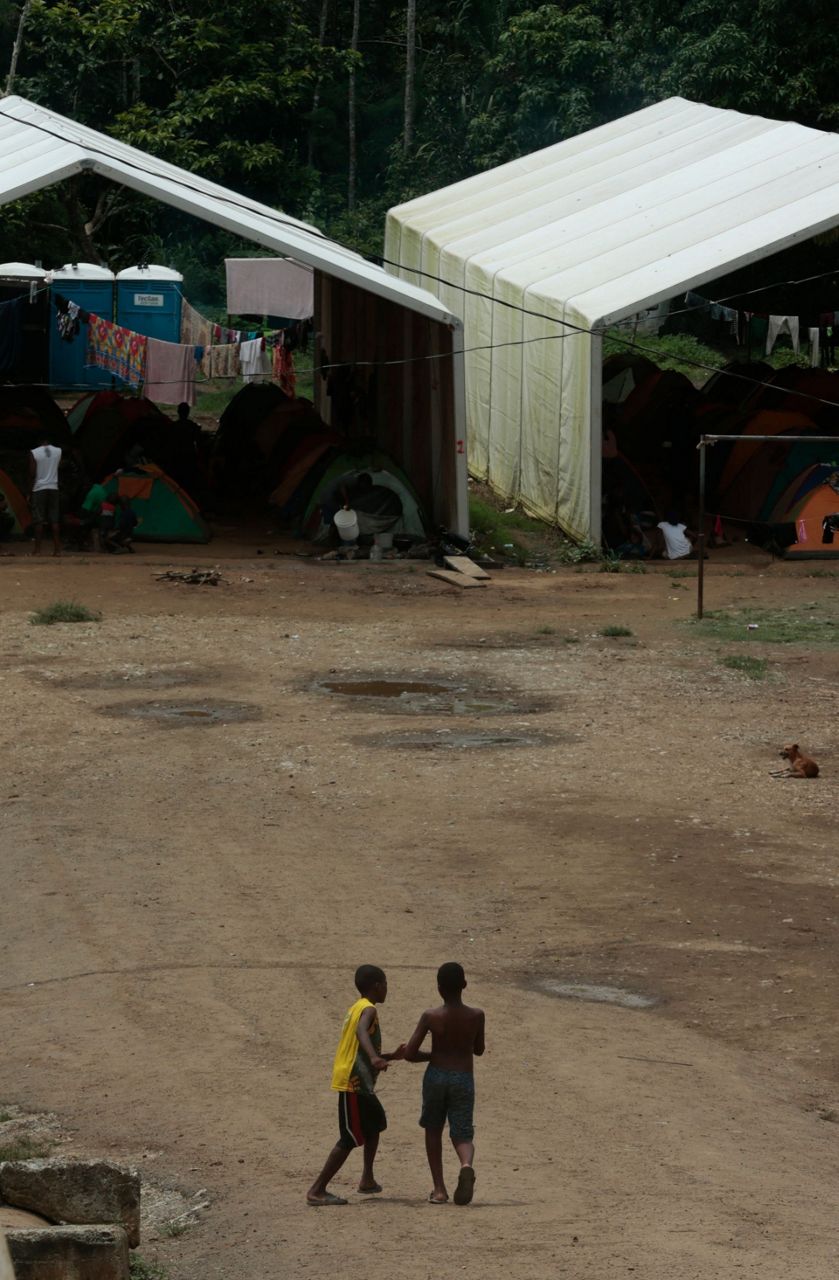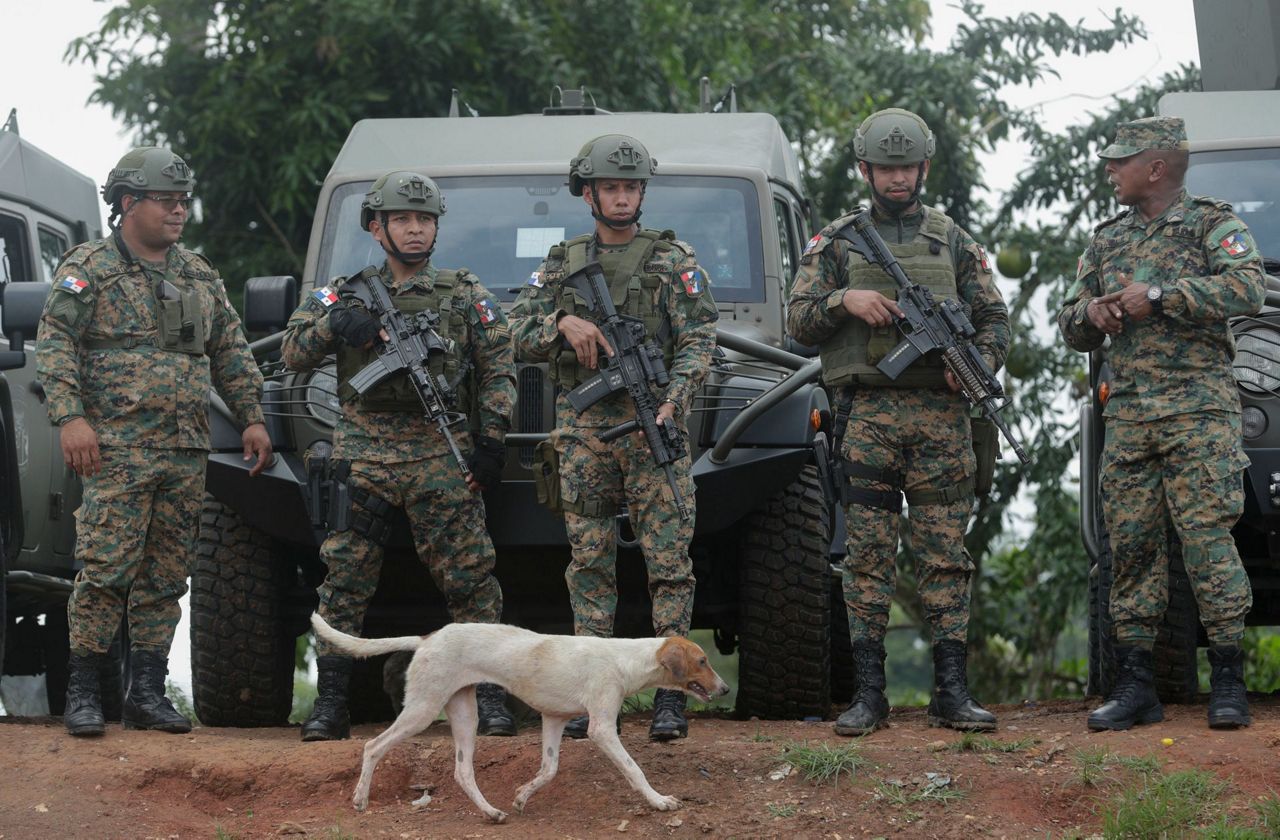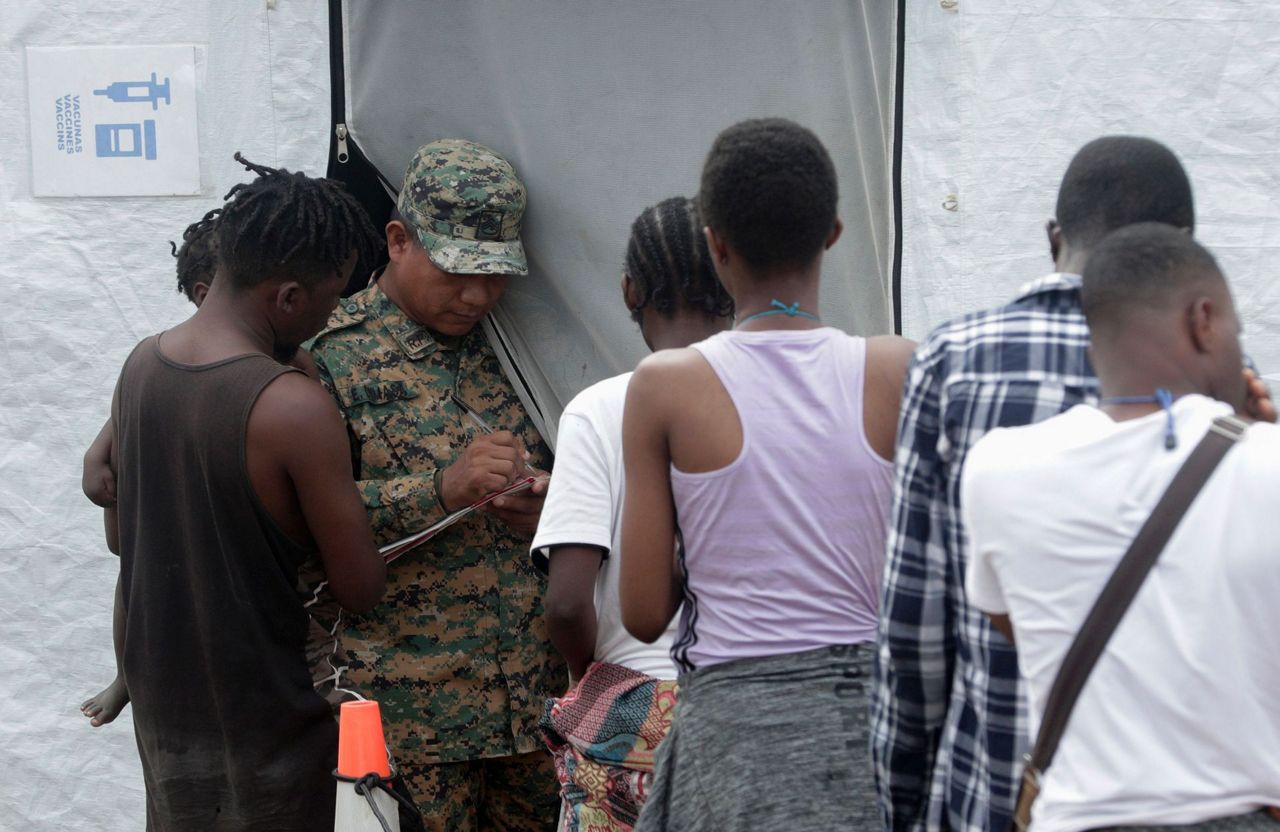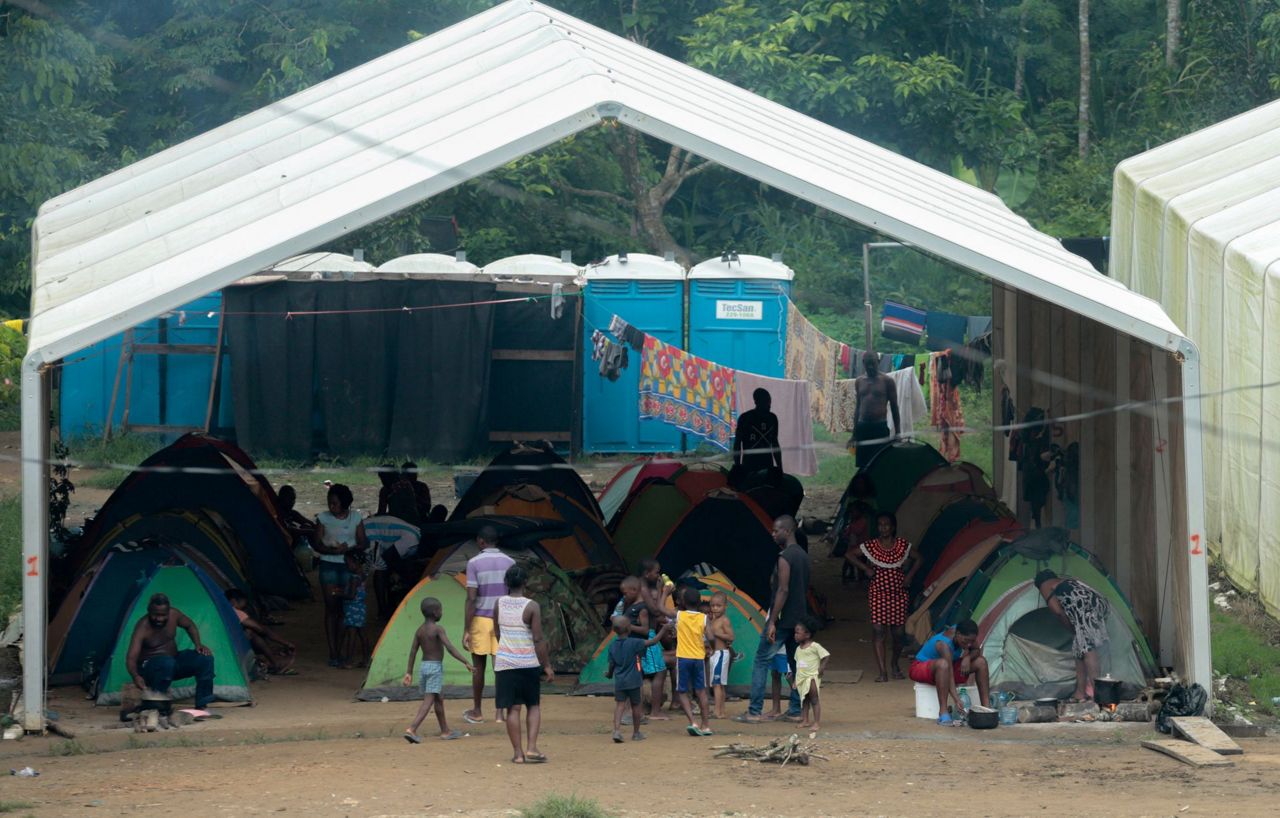PENITAS, Panama (AP) — The acting U.S. homeland security secretary visited a camp in the Panamanian jungle Friday housing hundreds of migrants who survived the perilous border crossing from Colombia, usually heading for the United States.
Kevin McAleenan arrived by SUV in Penitas shortly before midday and was briefed on the camp's operations and the physical conditions of those who crossed the region known as the Darien Gap. He did not interact during the brief visit with the migrants, who come mostly from Haiti, Cuba and Africa, along with some from Asian nations. Nor did he comment to journalists.
Panamanian authorities have seen a spike in crossings of the Darien this year, with more than 16,000 people estimated to have made the several-day trek by foot so far this year. It's a road-less, lawless place where stories abound of migrants suffering robbery, sexual assault or murder in the Gap.
About 500 migrants are currently at the camp in Penitas, down significantly from previous months.
Many of them said they were unaware of McAleenan's visit, and when he arrived with Panamanian Security Minister Rolando Mirones, escorted by border police, the migrants remained seated in villagers' homes and looked on with apparent indifference.
"I don't think he is here to put us on a plane and take us to his country," said Futuse Jean, a 19-year-old Haitian who was eight months pregnant. "It's apparent that every day all this (migration) is getting tougher. There are more obstacles for us."
"I need to get out of here," she added. "It's not the place to give birth to my child."
There has been an atmosphere of uncertainty in the camp since transport from Penitas to the Costa Rican border has been suspended for the time being, without explanation from Panamanian authorities.
On a hot and humid morning, migrants sat on shaded wooden porches and used cellphones to talk to loved ones. Dozens of tents were set up beneath two large open-air shelters next to rows of portable toilets. Laundry aired on chain link fences bookending a muddy path.
"What I would like is to be taken to a hospital," said Fabiola Verna, also from Haiti, who was sitting with her 2-year-old son in her arms and complained of lacerations on her feet from seven days marching through the jungle.
Some migrants said they hoped to leave soon for someplace safe where they can also find work, whether in the United States or not. Some mentioned Mexico as a possibility.
"My destination is not the U.S.," said Nelson Wanpadinga, a 32-year-old from Cameroon who said his family's homes were destroyed amid the armed conflict in that country. "My destination is a safe haven where I can have peace and I can do something to help my family back home."
McAleenan's visit came on the last day of a three-day trip to Panama during which he met with officials from Central America and Colombia to discuss strategies for slowing irregular migration in the region.
On Thursday, the officials agreed to boost migratory and border controls to combat human trafficking.
McAleenan also visited a monument to fallen Panamanian border police, leaving after lunch to head back to the United States.
Efrén Villavicencio, a 25-year-old Cuban, was one of the few at the camp who was aware of the U.S. official's presence. Accompanied by his wife and father, he said he wished McAleenan would at least talk to some of the migrants and give them hope.
"Many Cubans even want refuge in Panama," Villavicencio said. "Now, they shouldn't come and say, 'Take a plane to Cuba.' Nobody will accept that."
___
Associated Press video journalist Mauricio Valenzuela contributed to this report.
Copyright 2019 The Associated Press. All rights reserved. This material may not be published, broadcast, rewritten or redistributed.



